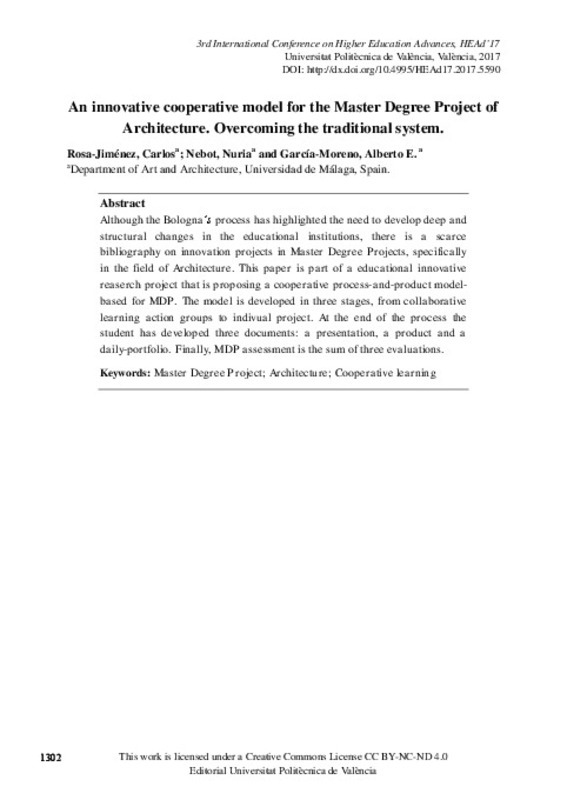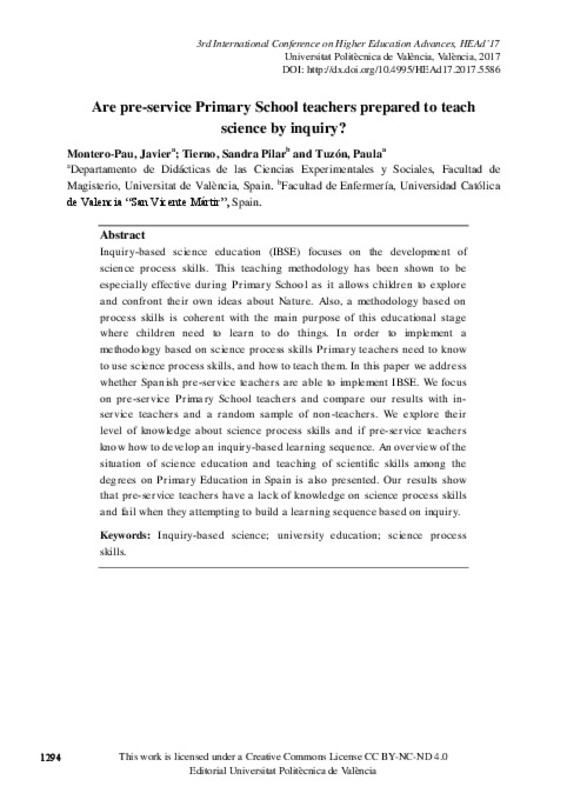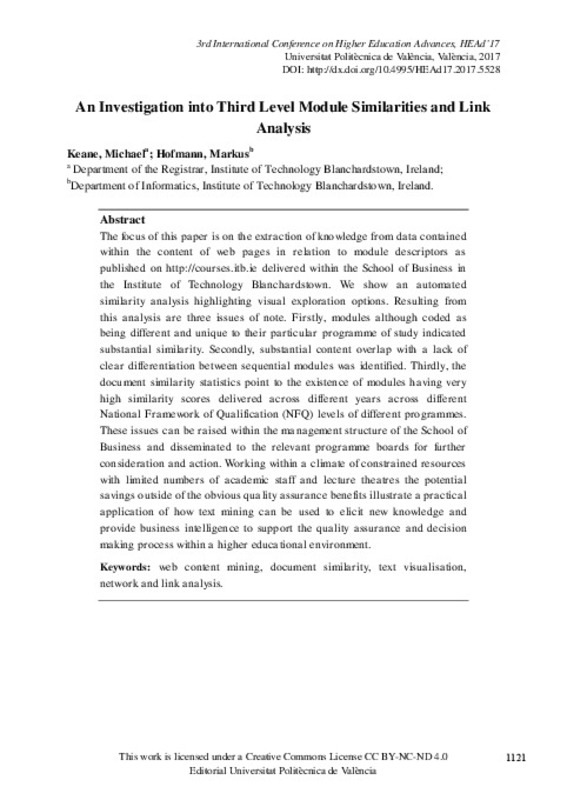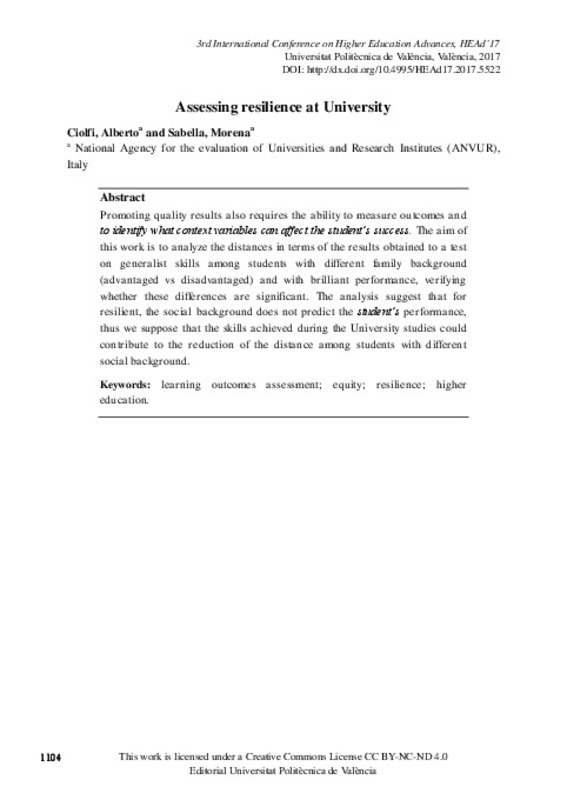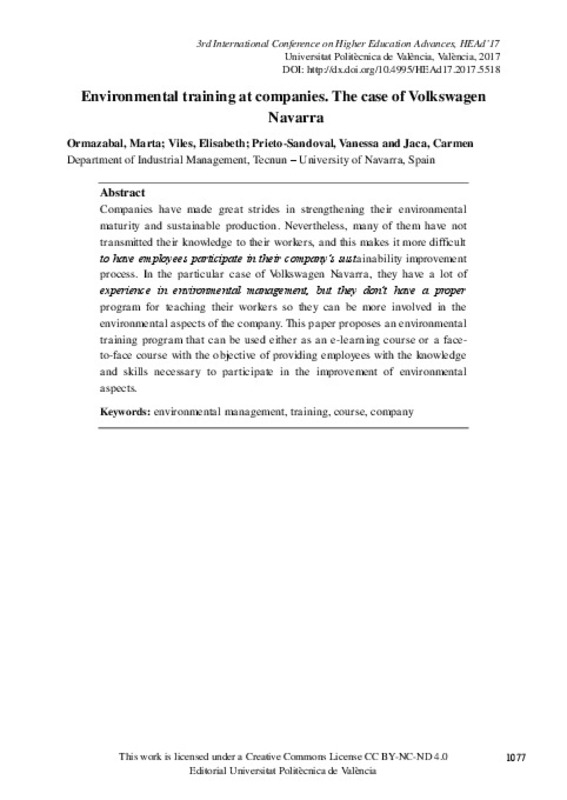- RiuNet repositorio UPV
- :
- Investigación
- :
- Material investigación. Editorial UPV
- :
- Congresos. Editorial UPV
- :
- Third International Conference on Higher Education Advances
JavaScript is disabled for your browser. Some features of this site may not work without it.
Refinar
Desde el lunes 3 y hasta el jueves 20 de marzo, RiuNet funcionará en modo de solo lectura a causa de su actualización a una nueva versión.
Third International Conference on Higher Education Advances
Information and communication technologies together with new teaching paradigms are reshaping the learning environment. The International Conference on Higher Education Advances (HEAd) aims to become a forum for researchers and practitioners to exchange ideas, experiences, opinions and research results relating to the preparation of students and the organization of educational systems.



